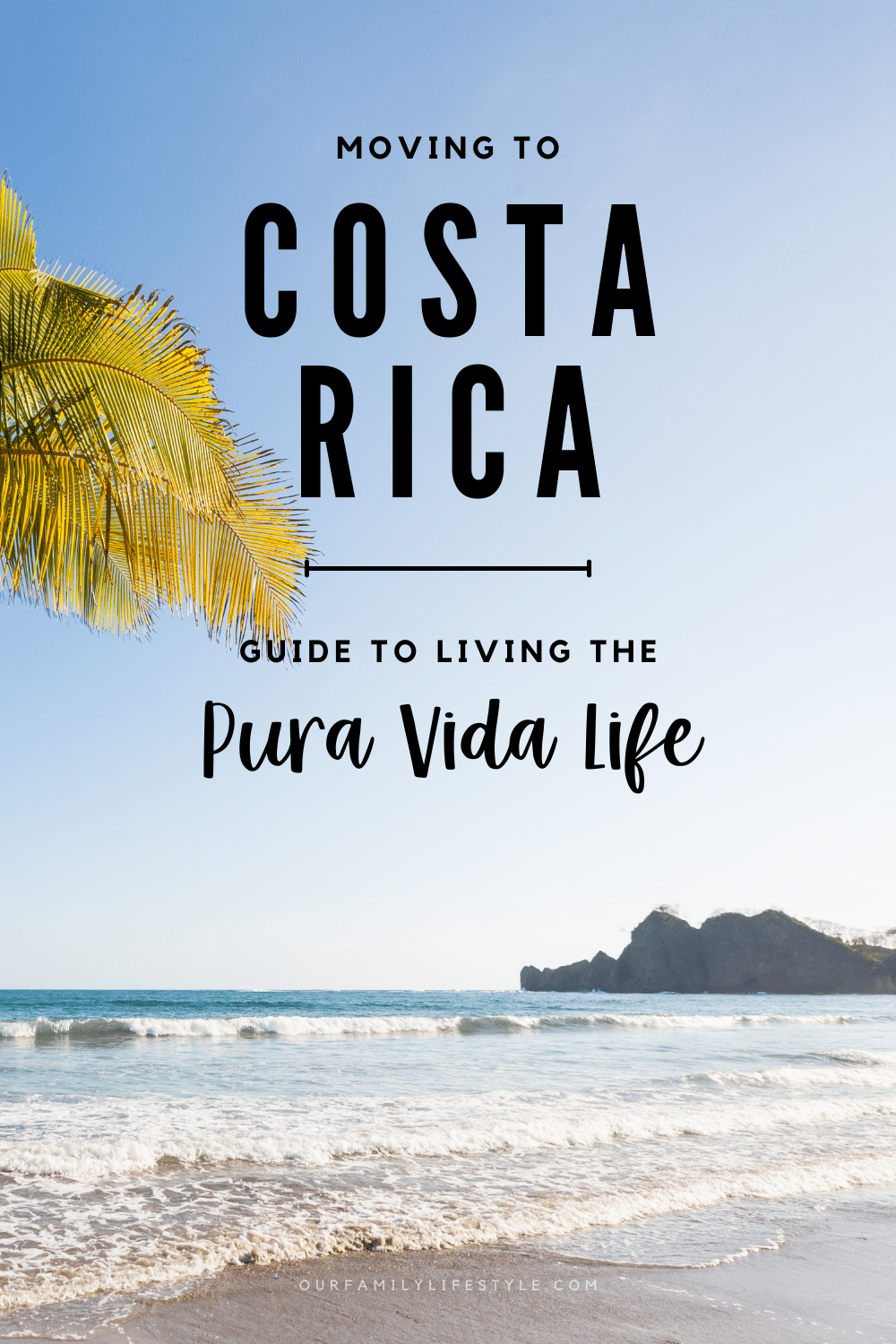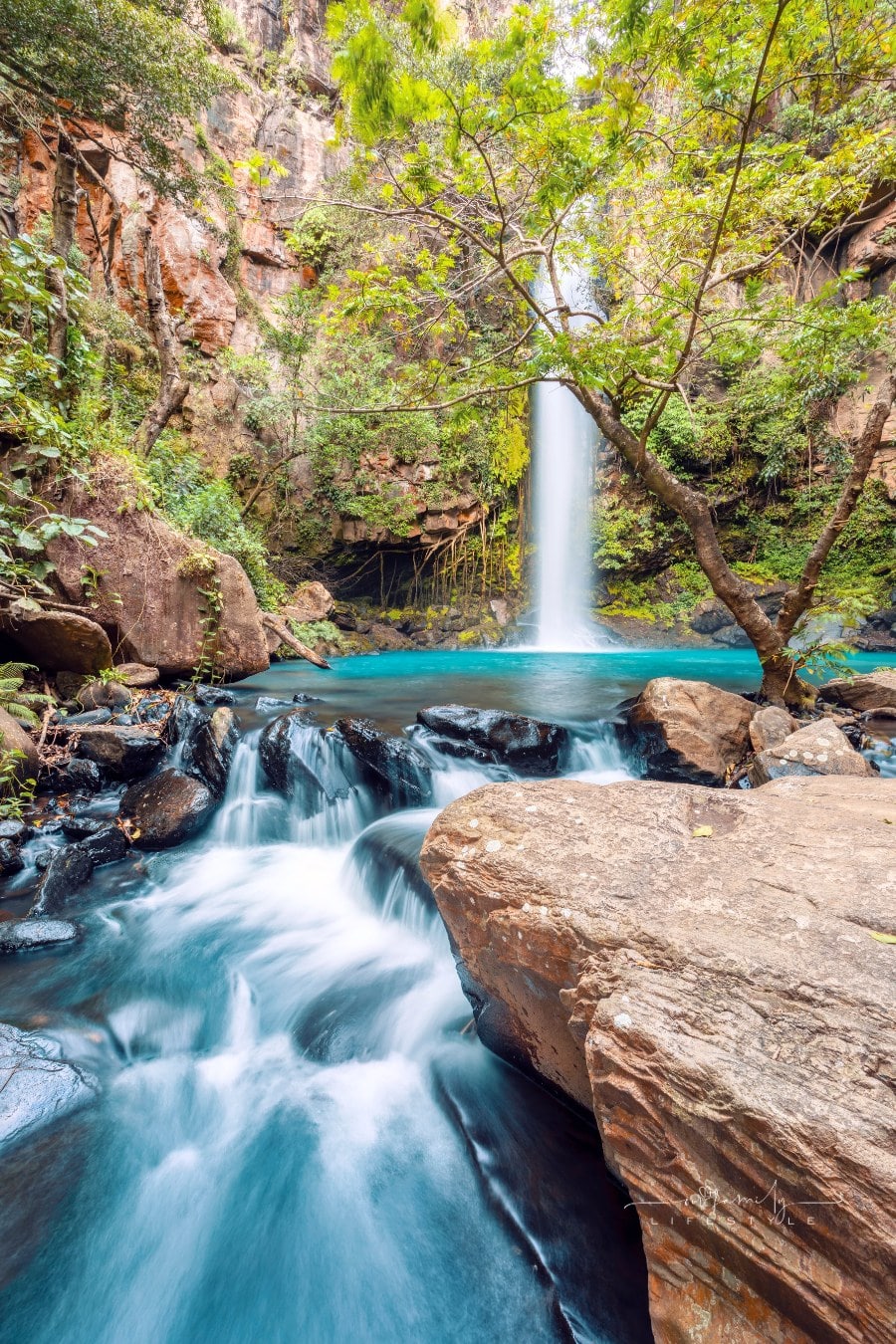Dreaming of year-round sunshine, lush rainforests, and a laid-back lifestyle? Costa Rica, often called the Switzerland of Central America, is a popular choice for American expats seeking a change of pace.
With its natural beauty, affordable living, and friendly locals, Costa Rica has a lot to offer. Here’s everything you need to know before making the move, from visa options to women’s rights and the cost of living.

Why Move to Costa Rica? The Pros and Cons of the Pura Vida Lifestyle
Costa Rica has become a hotspot for expats, but it’s essential to understand both the benefits and challenges before making the leap.
Pros of Moving to Costa Rica:
- Natural Beauty Everywhere: Costa Rica is known for its incredible biodiversity, with lush jungles, pristine beaches, and beautiful national parks.
- Stable Government and Safe Environment: Costa Rica is politically stable, has no standing military, and is generally considered one of the safest countries in Central America.
- Affordable Cost of Living: Compared to the U.S., the cost of living in Costa Rica is affordable, especially in smaller towns or rural areas.
- Pura Vida Culture: The phrase "Pura Vida" captures the country's relaxed, positive lifestyle. It’s all about appreciating life’s simple pleasures.
- Healthcare System: Costa Rica has high-quality, affordable healthcare through both public and private systems.
Cons of Moving to Costa Rica:
- Bureaucratic Challenges: The visa and residency processes can be time-consuming and require patience.
- High Cost of Imported Goods: Imported goods are expensive, especially electronics, cars, and specialty food items.
- Language Barrier: While many people in tourist areas speak English, learning Spanish is important for daily life and connecting with locals.
- Inconsistent Infrastructure: In some rural areas, infrastructure like roads and utilities can be inconsistent or underdeveloped.
If you love nature, warm weather, and a relaxed pace of life, Costa Rica might be just the place for you!
Cost of Living in Costa Rica: Budgeting for Your New Life
The cost of living in Costa Rica can vary significantly depending on your lifestyle and where you choose to live.
Housing Costs:
- Renting: Rent in cities like San José or the expat-friendly town of Escazú ranges from $700–$1,500 per month for a one-bedroom apartment. In smaller towns or coastal areas, rent is more affordable, starting around $400–$800.
- Buying Property: Costa Rica welcomes foreign buyers, and real estate prices vary greatly by location. Beachfront properties are more expensive, while rural areas are more affordable.
- Tip: Websites like Encuentra24 are popular for finding rental properties, but many expats rely on word of mouth or local realtors.
Food and Groceries:
- Groceries: Monthly groceries cost between $200–$400 per person. Local produce is inexpensive, but imported goods like specialty foods can be costly.
- Dining Out: Eating out at local "sodas" (small local restaurants) is affordable, with meals costing about $5–$10. More upscale restaurants may charge $15–$30 per meal.
- Tip: Shopping at local farmers’ markets (ferias) is a great way to save on fresh fruits, vegetables, and local delicacies.
Transportation:
- Public Transit: Costa Rica has a reliable and inexpensive bus system. Bus rides around the country cost between $1–$10, depending on the distance.
- Car Ownership: Many expats buy cars, but be aware that import taxes make vehicles expensive. Gasoline is also more expensive than in the U.S.
- Tip: Consider public transport or even carpooling for travel within Costa Rica, as roads, especially in rural areas, can be unpredictable.
Healthcare:
- Public Healthcare (Caja): Costa Rica has a universal healthcare system, called the "Caja," which provides affordable medical services to residents.
- Private Health Insurance: Many expats opt for private insurance for faster care and access to private hospitals. Private insurance can range from $50 to $200 per month, depending on the coverage.
- Tip: Private hospitals in Costa Rica are high-quality, and the costs are significantly lower compared to the U.S.
Visa and Residency: Navigating the Move to Costa Rica
Moving to Costa Rica requires an understanding of visa and residency options for long-term stays.
Visa Options:
- Tourist Visa: U.S. citizens can visit Costa Rica for up to 90 days without a visa. If planning to stay longer, a residency permit is required.
- Pensionado (Retiree) Residency: This visa is available for retirees with a stable income of at least $1,000 per month from a pension or retirement account.
- Rentista Residency: Designed for those who can prove a stable income of at least $2,500 per month for two years, or have $60,000 deposited in a Costa Rican bank.
- Work Visa: Work visas can be challenging to obtain, as Costa Rica prioritizes employment for its citizens. Most expats who work do so remotely or as entrepreneurs.
Residency Process:
After living in Costa Rica as a resident for three years, you may apply for permanent residency.
The residency process can be complex, involving a lot of paperwork, but hiring a local lawyer or immigration specialist can make the process easier.
Healthcare Access:
Once you have residency, you’ll need to enroll in Costa Rica’s public healthcare system, the Caja. Many expats supplement this with private insurance for access to faster care and private facilities.
Women’s Rights in Costa Rica: Legal Protections and Social Progress
Costa Rica is considered one of the most progressive countries in Central America concerning gender equality and women’s rights.
- Legal Protections: Costa Rica has laws that promote gender equality and protect women against discrimination and gender-based violence.
- Healthcare for Women: The healthcare system in Costa Rica provides full reproductive health services, including access to contraception and prenatal care. Abortion, however, is only legal in cases where the mother’s health is at risk.
- Women in the Workforce: Costa Rica has made strides toward gender equality in the workforce, with increasing female representation in politics and leadership roles.
- Support Networks: There are various women’s rights organizations and support networks, particularly in urban areas, providing resources and assistance to women.
Women moving to Costa Rica will find a welcoming and relatively progressive environment, especially in cities and among younger generations.
Costa Rican Culture: Embrace the "Pura Vida" Lifestyle
Costa Rica is all about living a relaxed, joyful life, and the culture reflects that.
Language:
- Spanish: Spanish is the official language of Costa Rica, and learning it will greatly enhance your experience. While many locals speak some English in tourist areas, speaking Spanish will help you connect better with the community.
- Useful Phrases: “Pura Vida” is a popular phrase used to mean “pure life,” but it’s also a way of saying hello, goodbye, or expressing positivity.
Social Life:
- Friendly and Welcoming Locals: Costa Ricans, or "Ticos," are known for being warm and friendly. Expect to be invited to social gatherings, especially if you live in a smaller town.
- Family-Oriented: Family is central to Costa Rican culture. Sundays are often reserved for family gatherings and shared meals.
Pace of Life:
Life moves at a slower pace in Costa Rica. People value relaxation, community, and nature. Don’t be surprised if things take a bit longer, and embrace the idea of not rushing.
Festivals and Celebrations:
- Fiestas and Rodeos: Costa Rica has plenty of local festivals, often featuring music, dancing, bull riding, and fireworks.
- Public Holidays: Costa Rica celebrates numerous public holidays, many of which include community gatherings and parades. Participating in these events is a great way to get to know the local culture.

Best Places to Live in Costa Rica for Expats
Costa Rica offers a variety of beautiful locations to call home, each with its own unique vibe.
- San José: The capital city, with modern amenities, hospitals, and a growing expat community. Great for those who enjoy city life.
- Escazú and Santa Ana: Upscale suburbs of San José, popular among expats for their amenities, international schools, and proximity to the capital.
- Arenal Area: Ideal for those who love nature, with beautiful views of Lake Arenal and lush surroundings.
- Tamarindo (Guanacaste): A popular beach town known for its surf culture, stunning sunsets, and vibrant expat community.
- Puerto Viejo (Caribbean Coast): A more laid-back, bohemian vibe with beautiful beaches and Afro-Caribbean culture.
Each area has its unique appeal, so choosing where to live depends on whether you prefer city amenities, beach living, or peaceful countryside.
Weather in Costa Rica: A Tropical Paradise
Costa Rica’s climate is tropical, with two main seasons:
- Dry Season (December–April): Known as "summer," with sunny, dry weather ideal for beach days and exploring the outdoors.
- Rainy Season (May–November): Called the "green season," when the country becomes lush and green. It rains most afternoons, but mornings are often clear.
Microclimates: Costa Rica has diverse microclimates. Coastal areas are typically hotter and more humid, while the Central Valley offers cooler temperatures year-round.
Practical Tips for Settling in Costa Rica
Here’s what you need to know to settle in Costa Rica:
Banking and Finances:
- Opening an Account: To open a bank account, you’ll need a valid passport and proof of residency. Popular banks include Banco Nacional and BAC.
- Currency: Costa Rica uses the Costa Rican colón (CRC), but U.S. dollars are widely accepted, especially in tourist areas.
Utilities and Internet:
- Setting Up Utilities: Electricity is typically provided by the Instituto Costarricense de Electricidad (ICE). Internet options are available through ICE, as well as private providers.
- Mobile Plans: Kolbi, Claro, and Movistar are popular mobile providers with affordable prepaid options.
Shopping Essentials:
- Grocery Stores: Auto Mercado, Walmart, and Maxi Pali are popular supermarkets. Local farmers’ markets are also great for fresh produce.
- Pharmacies: Pharmacies are well-stocked, and pharmacists are knowledgeable. Many medications are available over the counter.
Community Resources:
- Expat Groups: Join Facebook groups and expat forums for support and social opportunities.
- Language Classes: Many expats take Spanish classes to improve communication and integrate more easily into the community.
Must-See Places in Costa Rica: Embrace the Adventure
Costa Rica is filled with stunning natural beauty and adventure opportunities. Here are some must-visit spots:
- Manuel Antonio National Park: Famous for its wildlife, including monkeys and sloths, and beautiful beaches.
- Arenal Volcano and Hot Springs: Perfect for hiking and then relaxing in the natural hot springs.
- Monteverde Cloud Forest: A stunning, misty forest rich in biodiversity, with canopy walkways and ziplining.
- Corcovado National Park: Considered one of the most biodiverse places on Earth, it’s ideal for wildlife lovers.
- Tamarindo: Known for its surfing culture, beautiful beaches, and great seafood.
Conclusion: Welcome to the Pura Vida Life
Moving to Costa Rica means embracing a lifestyle of relaxation, nature, and community.
With a supportive healthcare system, affordable living, and breathtaking surroundings, Costa Rica is an inviting option for those seeking a change of pace.
With patience for bureaucratic processes and a willingness to adapt to a slower lifestyle, Costa Rica can quickly feel like home.






